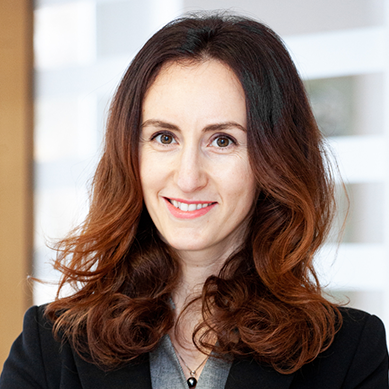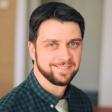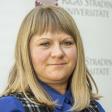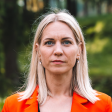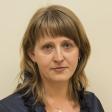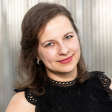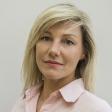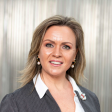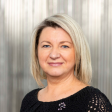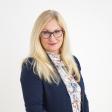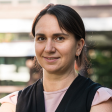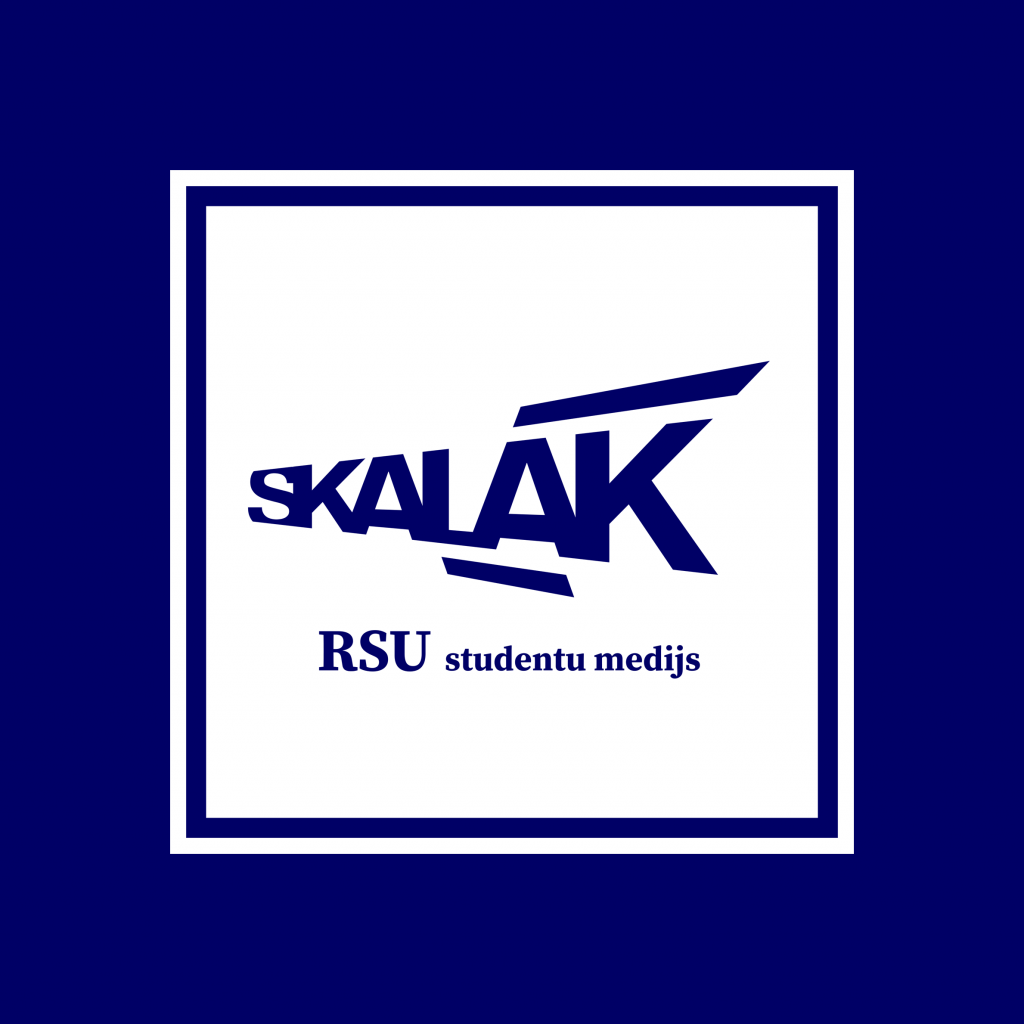Faculty of Social Sciences
The Faculty of Social Sciences, established in 2024, is the first in Latvia to introduce an innovative management system and to actively work on broadening the horizons of interdisciplinary research. Its structure and operating principles are borrowed from universities in the US - the University at Buffalo and the Massachusetts Institute of Technology - where lecturers from RSU have frequently gone to participate in experience exchanges.
The new faculty was created by merging three existing social sciences faculties - Law, Communication and European Studies. Combining these faculties creates new interdisciplinary opportunities and ensures a more efficient use of resources. This is important not only for scientists and researchers, lecturers and students, but also for the industry and society as a whole.
One of the pillars of the new faculty is the Social Sciences Research Centre, which will allow for the development of interdisciplinary social sciences research, as well as extend boundaries and address complex societal issues. It will also contribute to research being better integrated into studies, which is a priority for RSU as a research university.
The social sciences are dynamic and diverse. They are undergoing a global transformation in the digital age, creating a stronger dialogue and collaboration with other disciplines. I am convinced that interdisciplinarity in social sciences will provide a broader insight into social processes and thus contribute to increased innovation and creativity. Drawing on experience we have gained at the world's leading universities - the University at Buffalo and the Massachusetts Institute of Technology - and with a strong team, we have formed a faculty of the future with an emphasis on interdisciplinarity, which is increasingly required in both study and research. The RSU Faculty of Social Sciences is a faculty with ambitions that addresses significant global questions, thus offering solutions for long-term societal development.
Doc. Karina Palkova,
Dean, Faculty of Social Sciences
Studies
- Business and Economics
Study programmes for those who want to build their own business, understand the principles of sustainable economy and work in marketing management.
We provide a modern and innovative study environment that promotes development. Students can carry out scientific research and integrate the results to improve the performance of different companies and institutions.
In the Business and Economics programme group, we prepare highly qualified specialists who are in high demand on the labour market, with in-depth knowledge of international business management, marketing, advertising and start-ups. Our graduates are able to achieve great results in both the private and public sectors.
Employers value our graduates' excellent knowledge and outstanding skills to work proactively and with creativity.
- 1st cycle programmes (undergraduate)
- 2nd cycle programmes (postgraduate)
Asst. Prof. Romāns PutānsRīga Stradiņš University Main Building16 Dzirciema iela, Rīga, LV-1007Block C, Room 1Aromans [pts] putans rsu [pts] lvLiene ŠtokaStudy Process Organiser, Faculty of Social SciencesRīga Stradiņš University Main Building16 Dzirciema iela, Rīga, LV-1007C-1.a
rsu [pts] lvLiene ŠtokaStudy Process Organiser, Faculty of Social SciencesRīga Stradiņš University Main Building16 Dzirciema iela, Rīga, LV-1007C-1.aWorking hours:
P.–C. 9.00–17.00
Pk. 9.00–16.00+37167409184liene [pts] stoka rsu [pts] lv
rsu [pts] lv- Internal Security
The Internal Security Academy is a joint programme of several institutions (Ministry of the Interior of the Republic of Latvia, the State Police College of Latvia, Riga Stradiņš University, and the University of Latvia). By pooling resources, it has a common goal: to train highly qualified specialists to work in Latvian law enforcement institutions.
The study process is implemented at the University of Latvia, Rīga Stradiņš University and the State Police College, jointly using the study infrastructure and the academic staff of its partner organisations.
- 1st cycle programme (undergraduate)
- 2nd cycle programme (postgraduate)
Asst. Prof. Lidija JuļaAcademic Staff, Faculty of Social Sciences
Programme Group Leader, Faculty of Social Sciences
Lead Researcher, Faculty of Social SciencesSocial Sciences Research Centre9c Kuldīgas iela, Rīga, LV-1007A-214.+371 29975879lidija [pts] jula rsu [pts] lvSanita VīksneStudy Process Organiser, Faculty of Social SciencesSocial Sciences Research Centre9c Kuldīgas iela, Rīga, LV-1007A-109.
rsu [pts] lvSanita VīksneStudy Process Organiser, Faculty of Social SciencesSocial Sciences Research Centre9c Kuldīgas iela, Rīga, LV-1007A-109.Working hours:
P.–C. 9.00–17.00
Pk. 9.00–16.00+37167061593sanita [pts] viksne rsu [pts] lv
rsu [pts] lv- Communication and Media
Study programmes for those who want to understand the diverse field of communication, social processes and the context in which they take place. At the bachelor level, we train journalists with skills in different genres and media formats, multimedia content specialists (audio, video, photo, animation), public relations specialists, press secretaries, and social media content creators. At the master's level, we prepare future communications experts - capable managers, observers and researchers of communication processes.
The education we provide gives you the opportunity to see how theory works in practice, to think critically and to engage in the analysis and research of topical local and global processes. The programme is taught by professional local and international lecturers and experienced experts in the field.
We are proud of our strong and established bachelor's degree programmes in information and communication: Multimedia Communication, Public Relations, and Journalism. We are also proud of our student media network Skaļāk, which allows future communication professionals to practise in a simulated editorial environment and develop their portfolios during their studies. At the master's level, we are proud of the Communication and Media Studies, and Strategic Management and Public Relations programmes.
Come and study one of our programmes and become a skilled communications professional in today's ever-changing and therefore infinitely exciting world!
- 1st cycle programmes (undergraduate)
- 2nd cycle programmes (postgraduate)
Zane PuzakaStudy Process Organiser, Faculty of Social SciencesRīga Stradiņš University Main Building16 Dzirciema iela, Rīga, LV-1007C–1.b+371 67409101zane [pts] puzaka rsu [pts] lv
rsu [pts] lv- Psychology
This programme prepares students for a bachelor's degree in psychology and lays the foundation for a subsequent master's degree in psychology or art therapy. It provides an in-depth understanding of fundamental questions, as well as a personalised approach and modern teaching methods.
The programme offers students the opportunity to broaden their knowledge, develop skills and gain experience that will serve as a foundation for a successful career and their own personal development in the field of psychology or art therapy.
- 1st cycle programme (undergraduate)
Assoc. Prof. Dr. psych. Sandra MihailovaRīga Stradiņš University Main Building16 Dzirciema iela, Rīga, LV-1007C-215.+371 29144606sandra [pts] mihailova rsu [pts] lvSandra AlksneStudy Process Organiser, Faculty of Social SciencesRīga Stradiņš University Main Building16 Dzirciema iela, Rīga, LV-1007C-215.
rsu [pts] lvSandra AlksneStudy Process Organiser, Faculty of Social SciencesRīga Stradiņš University Main Building16 Dzirciema iela, Rīga, LV-1007C-215.Working hours:
P.–T. 8.30–16.30
Pk. 8.30–15.30+37167062641sandra [pts] alksne rsu [pts] lv
rsu [pts] lv- International Politics and Society Studies
Dynamic and diverse study programmes for those interested in the challenges of global politics and societal development - for those who want to understand and shape our world
Those with an interest in politics or international relations, a desire to work in government or the diplomatic service, or to become an expert in anthropology, are invited to be part of our family and study in the International Relations - European Studies bachelor programme, or in one of the three masters programmes: International Relations and Diplomacy, Russian and Eurasian Studies (which will be called International System Transformation in the future), or Social Anthropology.
We provide our students with the tools they need to build the career of their dreams, and together we build the world of tomorrow!
- 1st cycle programme (undergraduate)
- 2nd cycle programmes (postgraduate)
Lect. Lelde Metla-RozentāleProgramme Group Leader, Faculty of Social Sciences
Study Process Coordinator, Faculty of Social SciencesRīga Stradiņš University Main Building16 Dzirciema iela, Rīga, LV-1007C-1.a+37167409161lelde [pts] rozentale rsu [pts] lvIlze SpeķeStudy Process Organiser, Faculty of Social SciencesRīga Stradiņš University Main Building16 Dzirciema iela, Rīga, LV-1007C-1.a
rsu [pts] lvIlze SpeķeStudy Process Organiser, Faculty of Social SciencesRīga Stradiņš University Main Building16 Dzirciema iela, Rīga, LV-1007C-1.aWorking hours:
P.–T. 8.30–16.30
Pk. 8.30–15.30+37167409161ilze [pts] speke rsu [pts] lv
rsu [pts] lv- Law
Study programmes for those who want to be modern lawyers, and acquire the unique interdisciplinary skills needed in the contemporary legal field. The programmes prepare students for successful careers and contribute to the development of the field of law.
Tiesību zinātnes studijas ir lielisks veids, kā stiprināt tiesiskumu valstī, aizsargāt citu personu intereses, rūpēties par kārtību sabiedrībā un iegūt interesantu, spraigu, izaicinājumu pilnu un visos laikos vajadzīgu darbu. Ir iespēja studēt bakalaura studiju programmā, akadēmiskā maģistra studiju programmā un profesionālā maģistra studiju programmā, iegūstot jurista kvalifikāciju. Studiju programmās papildus tiesību zinātnes vispārīgajiem kursiem apgūsiet tādus kursus kā Kriminālistika, Pacientu tiesības, Digitālie veselības dati, datu bāzes un analītika, Datu analīze un mākslīgais intelekts veselības aprūpē. Studijas notiek modernās auditorijās, kriminālistikas laboratorijā, tiesas sēžu izspēļu zālē.
Studying law is an excellent way to strengthen the rule of law in a country, to protect others' interests, to maintain order in society and to get an interesting, challenging and fulfilling job that is needed in all times. You can study in a bachelor's degree programme, an academic master's degree programme or a professional master's degree programme, and obtain a qualification as a lawyer. In addition to general law courses, you can take courses such as Forensic Science, Patient Law, Digital Health Data, Databases and Analytics, Data Analysis, and Artificial Intelligence in Healthcare. Our students have access to state-of-the-art classrooms, a forensic laboratory, and a mock courtroom.
- 1st cycle programmes (undergraduate)
- 2nd cycle programmes (postgraduate)
Assoc. Prof. Inga KudeikinaSocial Sciences Research Centre9c Kuldīgas iela, Rīga, LV-1007A-107.+37167061594inga [pts] kudeikina rsu [pts] lvInga MinkevičaStudy Process Organiser, Faculty of Social SciencesSocial Sciences Research Centre9c Kuldīgas iela, Rīga, LV-1007A-210.
rsu [pts] lvInga MinkevičaStudy Process Organiser, Faculty of Social SciencesSocial Sciences Research Centre9c Kuldīgas iela, Rīga, LV-1007A-210.Working hours:
P.–C. 9.00–17.00
Pk. 9.00–16.00+37167060876inga [pts] minkevica rsu [pts] lv
rsu [pts] lv- Health Management
Unique study programmes for those interested in the global challenges facing health systems and those who want to get involved in leading change and digital transformation in healthcare. The programmes prepare highly qualified professionals in policy development and management in the health sector, in strategic-, financial-, human resources- and quality management, health data management, health communication, and health economics. Graduates of the programme are the key to the development and sustainability of our healthcare system!
- 2nd cycle programmes (postgraduate)
Asst. Prof. PhD Daiga BehmaneProgramme Group Leader, Faculty of Social Sciences
Lead Researcher, Institute of Public Health
Member of Scientific Council, Institute of Public HealthMedical Education Technology Centre26a Anniņmuižas bulvāris, Rīga316.Working hours:
T. 15.00–17.00+371 29237157daiga [pts] behmane rsu [pts] lvPatrīcija FreibergaStudy Process Organiser, Faculty of Social SciencesMedical Education Technology Centre26a Anniņmuižas bulvāris, Rīga314-7.+37167062668patricija [pts] freiberga
rsu [pts] lvPatrīcija FreibergaStudy Process Organiser, Faculty of Social SciencesMedical Education Technology Centre26a Anniņmuižas bulvāris, Rīga314-7.+37167062668patricija [pts] freiberga rsu [pts] lv
rsu [pts] lv
The student media network Skaļāk
The RSU student media network Skaļāk ("louder" in Latvian) aims to be a unique voice in the public space, foster creative collaboration among students from various fields, and provide insights into dynamic student life.
Skaļāk offers students of the Faculty of Social Sciences the opportunity to implement their biggest and boldest ideas and hone their storytelling skills – they can create podcasts, video stories, interviews, or visual stories, thus simultaneously applying a simulation-based educational approach.
- Read more
Skaļāk is the place where students' stories become adventures that can engage people from different fields and professionals, and at the same time shape future narratives. It is a place where new, exciting, independent, and valuable content is created. Over the years, the RSU student media network has become a noticeable player in public communication in Latvia, which is proof that the voices of future professionals are worth listening to!
Inquisitio, the magazine for student investigative journalism
Inquisitio ("investigation" in Latin) is the only magazine for investigative journalism in Latvia produced by third-year journalism students in the Investigative Journalism course.
Its aim is to give students the opportunity to work on serious journalistic research already during their studies, to take responsibility for their findings and to discuss the potential of journalism with the public. The process of creating Inquisitio reflects the simulation approach of the study process. The only difference is that our magazine is a real and unique media product.
- Read more
The journal is published in spring each year (both in print and digital formats), demonstrating the students’ ideas, skills, and discoveries. The journal’s strength lies in its core value - responsible and professional journalism that sheds light on issues that matter to society.
The journal is divided into several sections. Each journal features research, using an experiment method and revealing hidden processes. The authors of Inquisitio take an in-depth look at societal, media, social, economic, cultural, and sports processes. For example, previous journals have revealed the profound problems that the use of non-bank lenders can create in the lives of students and their families; students analysed the latest disinformation techniques that are used to manipulate public opinion; writers have explored consumer habits that could reduce climate change; articles uncovered “black holes” in web shopping and critically assessed the effectiveness of popular health improvement marketing projects.
Inquisitio was created in 2014 using the findings of Ralfs Šēniņš bachelor's thesis. Learning that investigative journalism magazines were created in the US at the beginning of the 20th century, Šēniņš decided that this idea could be adapted to the 21st century. He conducted audience research and created the journal. Part of what he did as part of his thesis became the basis of Inquisitio. Each year, students create the entire journal, lead by Prof. Anda Rožukalne: from coming up with research ideas to presenting and discussing the journal with Latvian investigative journalism professionals.
The University's Publishing and Printing Unit ensures that the students' work is transformed into a modern print publication and the Communications Department publicises it. The journal is available free of charge at RSU, and it is regularly distributed at various events and youth gatherings. The digital version of the journal can be found on the website of RSU's student media network, Skaļāk - skalak.rsu.lv.
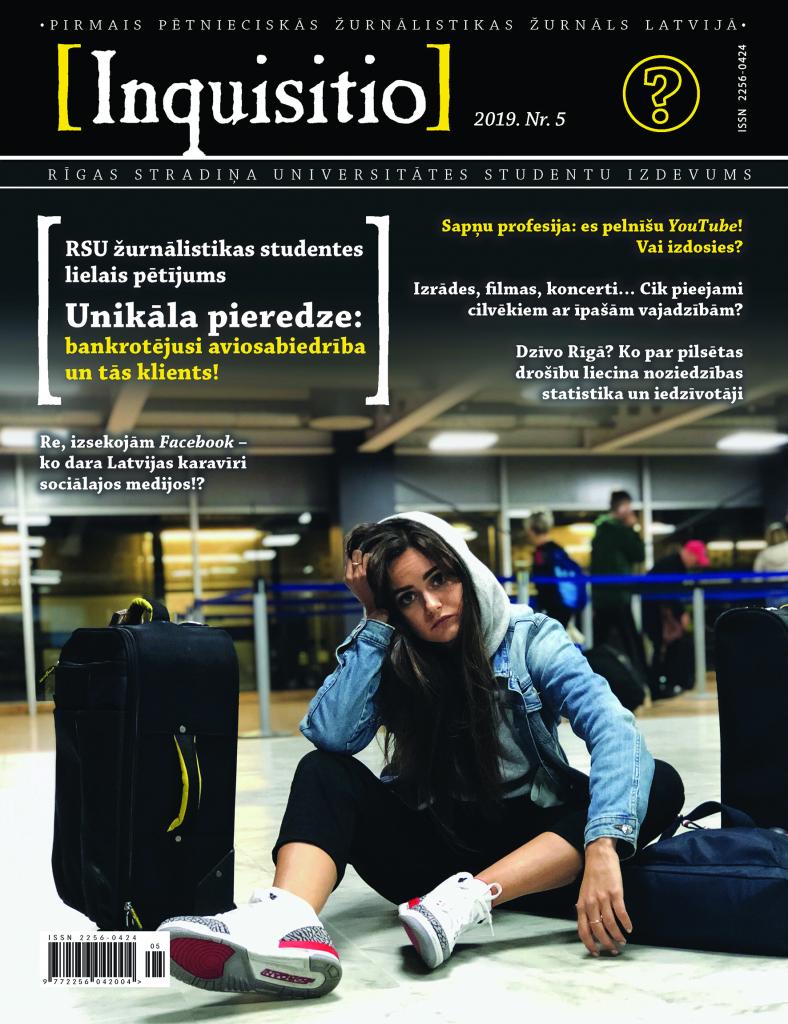
Faculty of Social Sciences
Related news
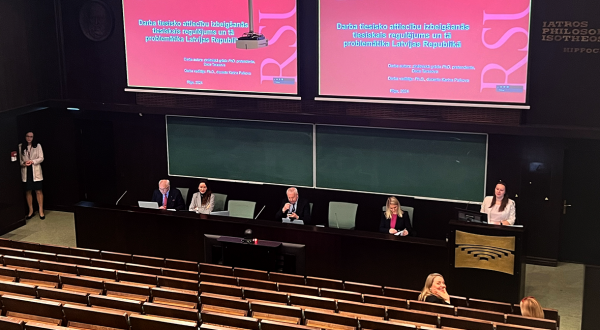 Dissertation thesis on the legal regulations for terminating employment in LatviaRSU research synapses, For PhD Students, Law
Dissertation thesis on the legal regulations for terminating employment in LatviaRSU research synapses, For PhD Students, Law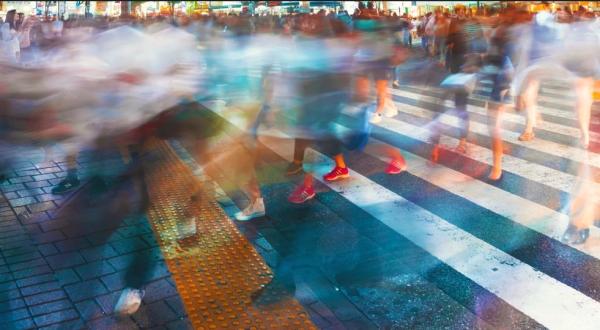 RSU will host anthropological conference on human mobility in OctoberConferences, workshops, Research, removingties.lv, Social anthropology
RSU will host anthropological conference on human mobility in OctoberConferences, workshops, Research, removingties.lv, Social anthropology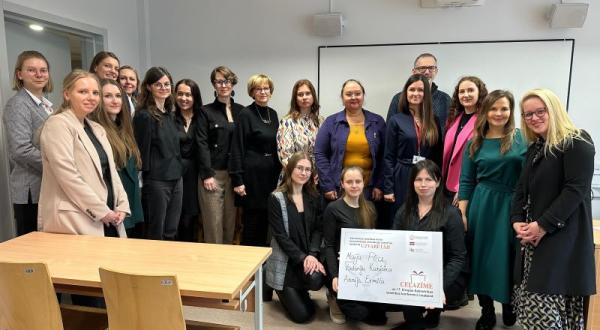 Winners of the RSU public health crisis communication simulation scenario competition announcedFor Students, Recognition, Research, Public Health
Winners of the RSU public health crisis communication simulation scenario competition announcedFor Students, Recognition, Research, Public Health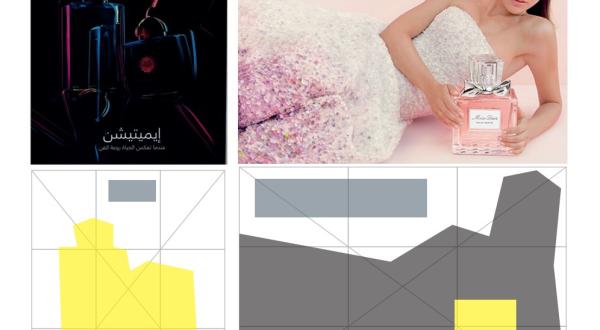 Research on Western advertising design principles and visual structure in advertisements in the gulf countriesRSU research synapses, For PhD Students, Research
Research on Western advertising design principles and visual structure in advertisements in the gulf countriesRSU research synapses, For PhD Students, Research